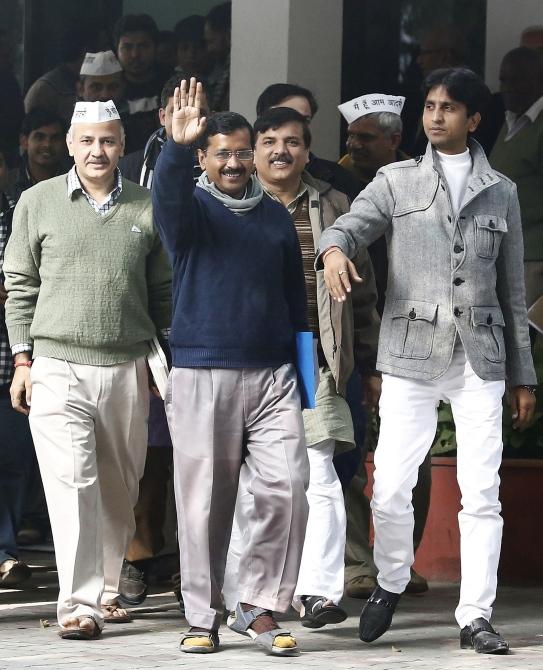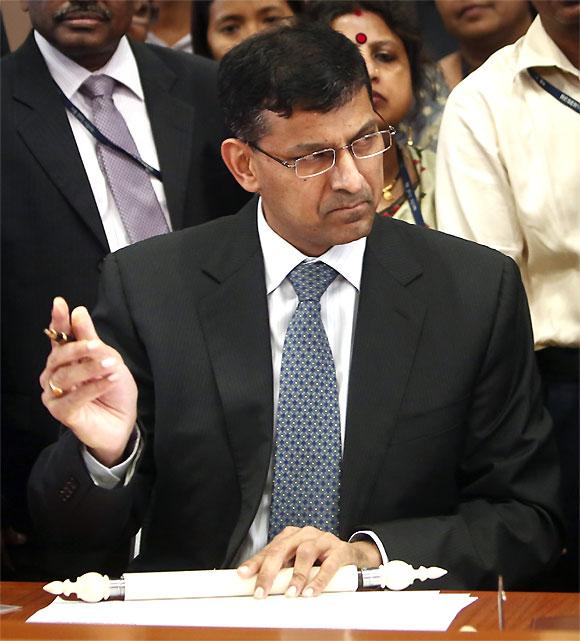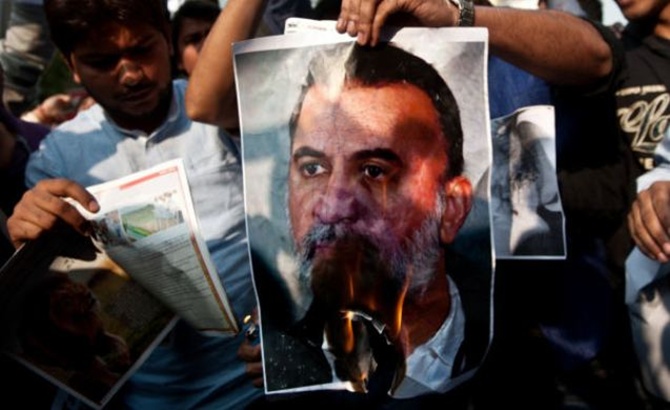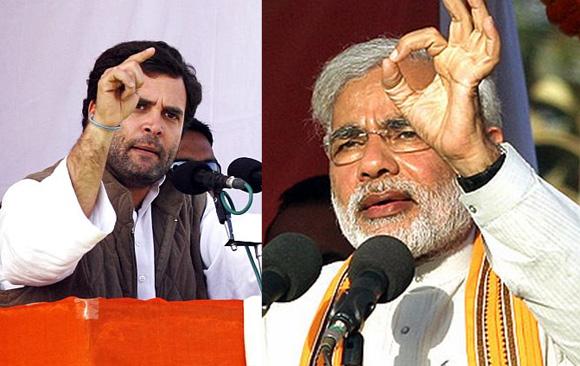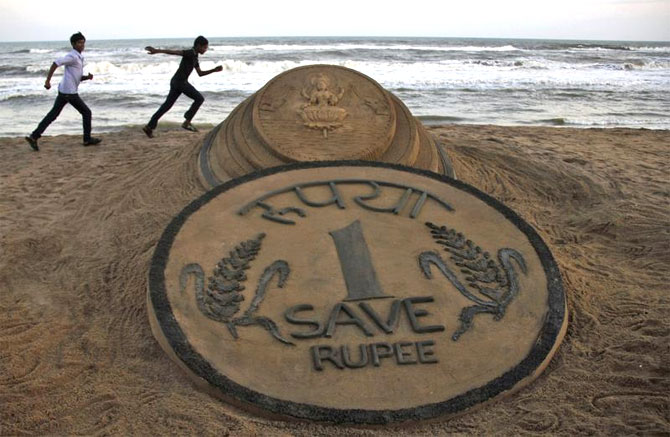 | « Back to article | Print this article |
Top 6: News stories that will make or break your career
Dr Ranjit Goswami, Dean, Institute of Management Technology, Nagpur tells you what to expect in your MBA admission interview this year.
With hundreds of students from across the country applying for a limited number of management seats, competition just got tougher for our business school aspirants.
Having cleared the Common Admission Test, candidates now have to clear the crucial Group Discussion and Personal Interview rounds before they can confirm their admission.
So, what are the topics you can expect in the GD? And how can you best prepare for them?
We understand you don't have the time to ruffle through old newspaper cuttings and/or refer to the e-edition, so here's a ready reckoner of the important events, national and international that made the headlines in the last few months.
AAP in Delhi: Promises delivered or high hopes?
The Aam Aadmi Party or common man's party was formally launched on November 26, 2012. It came into existence to bring an end to corruption and bring real development.
The AAP had promised the following to the people of Delhi if it comes into power:
- Jan Lokpal Bill by Dec 29, 2014
- CAG audit of Electricity Discoms and 50 per cent reduction in electricity prices
- Prevent Water theft and ensure up to 700 litres of water to everyone
- Making Delhi a city that celebrates the freedom and equality of women, starting with their Safety
- Real Human Development, starting with focus on health and education
In the 2013 Delhi legislative assembly election, it emerged as the second-largest party, winning 28 of the 70 seats.
With no party obtaining an overall majority, the AAP formed a minority government with conditional support from the Indian National Congress.
On its first day in office, AAP ministers and MLAs refused the VIP security that is usually provided to the elected party ministers, thus releasing thousands of policemen for public security -- an attempt to increase safety in Delhi.
Further, the AAP made 20,000 litres of water per month free per family but those using more than 20,000 litres per month will have to pay 10 per cent extra.
Also, he reduced the electricity rates by 50 per cent for those using less than 400 units and those using above it will have to pay extra.
The Analysis
While he did fulfil the promises made by him to certain extent some things still appear to be distant dream.
With Kejriwal resigning from the CM post and the AAP preparing itself to contest in the upcoming Lok Sabha polls, it becomes crucial to understand whether or not they'll live up to their tall promises.
Please click NEXT to continue reading...
The economic impact of Brazil's 2014 World Cup
Much has been said about the economic situation of the country following last month protests against the government.
While a global event like the FIFA World Cup opens up a lot of economic opportunities, the question lies in whether Brazil is ready to pull it off.
The Analysis
Though the economy has grown, weakness in infrastructure and productivity is holding the country back.
The Brazilian companies can go global and boost international trade and Brazil entrepreneurs can take advantage and build strong international ties.
It would lead to an increase in the productivity of the workers in the services sectors (restaurants, event planning and executive transport), sports and tourism.
If the tourists are satisfied with their stay, foreign delegations will no doubt advertise in their own countries the services they used in Brazil, thus creating a strong demand.
The benefits of a boost to GDP, tax revenue, tourism and jobs would be limited to the 12 host cities.
Building stadiums or hospitals is the bigger question as only 15 per cent of the total budget will be financed by the private sector which reduces public spending in other areas.
Although the WC would be profitable for FIFA, some of the arenas could end up being expensive yet unused installations and might lead to razing of the structures.
India fears tapering woes
Tapering means reducing the Federal Reserve's bond buying from $85 billion to $75 billion per month.
This has a negative impact on emerging market economies (EMEs).
The result of tapering is directly felt on foreign investments flowing inside a developing economy.
As a result of tapering, the prices of bonds go down and the interest rates in USA will go up.
Foreign investors find it more lucrative to invest in USA than in developing nations.
India is already facing low growth, high inflation and a depreciating currency; capital flight will worsen the situation.
Analysis
Raghuram Rajan is trying to curb inflation by taking a stern stance on liquidity measures.
The RBI has restored some confidence by stating that tapering will have limited impact on Indian economy.
Export companies will relatively do well if they are exporting to USA.
India has garnered a huge sum of foreign reserves from the FCNR (B) window opened during last year in November.
The damage that had to be done is done, there can be little outflow of hot money.
India is in a better position to handle fears related to tapering.
The Tarun Tejpal sexual assault case
Tarun Tejpal, editor in chief of Tehelka has been accused of sexual assaulting a fellow woman journalist.
The woman journalist had accused Tejpal of sexually assaulting her twice on November 7 and 8, 2013 in Goa.
The journalist revealed that he had assaulted her in an elevator both the times during a conference in the resort state of Goa.
Tarun Tejpal had known the victim since a long time as he was a good friend of her father.
He was arrested for the same from the Goa crime branch office and had applied for bail but his plea was rejected.
Analysis
This case brings to light how safety of women at workplace is still an unresolved issue. That even a well reputed media personality like Tejpal could stoop to such a level, was a huge shock for many.
In many cases the career of victim filing the harassment case is hampered more than the accused, because of which many women either keep bearing it or quietly quit.
The government needs to make more strict rules that protects the dignity and rights of the women at workplace and at the same time take necessary actions that punish those who try to violate it.
PM race: Rahul Gandhi vs Narendra Modi
The battle for the prime ministerial post couldn't get any more intense.
With Rahul Gandhi pitted against Narendra Modi for the 2014 elections, we take a look at these contrasting politicians.
Education and background
Narendra Modi was one of six children born into a family of grocers in Vadnagar, Gujarat. He ran a tea stall at a bus station, before working in the canteen of the Gujarat State Road Transport Corporation, before starting his political career by becoming a full time propagandist at RSS. He would later complete his master's degree in political science from Gujarat University.
Rahul Gandhi is the son of late Rajiv Gandhi, former prime minister of India, and Sonia Gandhi, currently the president of Indian National Congress.
He did most of his schooling in Delhi and Dehradun, before being home-schooled due to death threats from Sikh extremists, who had assassinated his grandmother Indira Gandhi, when she was the prime minister.
He went to on to study at St Stephen's, Delhi and Harvard University, USA, before shifting to Rollins College, USA after his father was assassinated by the LTTE in 1991.
Political views
While Rahul Gandhi represents the Congress, which advocates neo-liberal policies as well as populism, social liberalism, and secularism; Narendra Modi represents the Bharatiya Janata Party, which advocates integral humanism and Hindutva, which it describes as cultural nationalism which is dedicated to a harmonious society as opposed to Hindu nationalism.
It supports strong national defence policies.
The personalities
Narendra Modi is often portrayed as an outspoken leader who can easily connect with the masses, with his fiery speeches and clear stance on issues while Rahul Gandhi's image is one of a young leader, still searching for clarity on the burning issues of the country.
While Narendra Modi came to the forefront of the nation after the 2002 Gujarat riots, and is often accused of failing to curb the killings of Muslims at the same time, Rahul Gandhi has had a quieter recent past, entering the political arena only in 2004, before working his way up to being the general secretary in charge of Indian Youth Congress to the poster boy of Congress.
Both however have some similarities, in the fact that they are change catalysts within their own parties.
Gandhi is trying to bring a more youthful and democratic look to an extremely traditional party, while Modi sees himself as the sole leader of the BJP, which has been a collective unit in the past.
Rupee devaluation: Good or Bad?
The Bad
It creates an atmosphere of imbalance in repayment which creates a huge problem in the import driven economies.
This means that the import gets expensive which in turn increases the Current Account Deficit.
This increase in CAD will further devaluate the currency and this cycle will continue unless the imports are reduced to nullify the effect.
The Good
For the IT/ITeS and pharmaceutical companies the devaluation of the currency is always a welcome change.
The falling rupee gets support from higher remittances from the Middle-East and exporters are willing to sell receivables at a lower price.
A lower rupee makes imports more expensive, leading to a lower current account deficit. And the rupee's slide reverses, making gold cheaper in the process.
